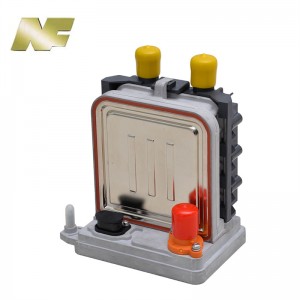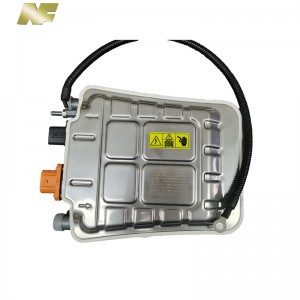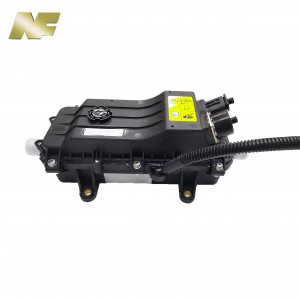In the race to develop more advanced and efficient electric vehicles (EVs), manufacturers are increasingly turning their attention to improving heating systems. As demand for electric vehicles continues to grow, especially in cold climates where heating is critical for comfort and safety, companies are investing in innovative solutions to ensure their vehicles can withstand harsh weather conditions while maximizing Reduce energy consumption.
One of the technologies getting a lot of attention is the EV PTC heater, which stands for Positive Temperature Coefficient. The heating system is designed to quickly and efficiently heat the interior of an electric vehicle without draining the vehicle's battery. By using PTC ceramic elements, the heater can generate heat quickly and maintain a constant temperature, providing a comfortable environment for the driver and passengers. Additionally, PTC heaters are compact and lightweight, making them ideal for electric vehicles where space and weight savings are key factors.
Another heating technology that is of interest to EV manufacturers is the EV HVCH (High Voltage Cab Heater). This innovative system is designed to use the high-voltage powertrain of an electric vehicle to effectively heat the interior of the vehicle, reducing reliance on the vehicle's main battery and extending its range. By utilizing the high voltage provided by the powertrain, HVCH is able to generate enough heat to keep the cabin warm while minimizing energy consumption. The technology is particularly attractive to electric vehicle manufacturers looking to improve vehicle efficiency and address common concerns about the impact of cold weather on EV performance.
Additionally, EV manufacturers are also exploring the use of electric heaters for EVs, which offer a range of benefits for EV heating systems. These heaters are designed to be energy efficient, using electricity to generate heat without the need for traditional combustion methods. By utilizing electric heaters, electric vehicles can achieve rapid heating while minimizing energy consumption, making them an attractive option for environmentally conscious consumers. Additionally, electric heaters can be integrated with advanced control systems to provide precise temperature regulation, improving comfort and convenience for EV occupants.
Investments in these advanced heating technologies underscore EV manufacturers’ commitment to solving the unique challenges posed by electric vehicles, particularly in colder climates. By developing efficient and reliable heating systems, manufacturers are looking to enhance the appeal of electric vehicles to a wider range of consumers, including those who live in areas with extreme weather conditions.
In response to these advances, industry experts note that heating systems are becoming increasingly important in the overall design and performance of electric vehicles. As electric vehicles continue to gain traction in the automotive market, manufacturers must prioritize developing heating technologies that deliver reliable performance while minimizing energy consumption. By investing in innovative solutions such as PTC heaters, HVCH and EV electric heater, manufacturers are meeting the changing needs of consumers and further driving the adoption of electric vehicles.
Going forward, the integration of advanced heating technologies into electric vehicles is expected to play an important role in shaping the future of electric vehicles. As manufacturers continue to push the boundaries of innovation, consumers can expect to see more efficient and reliable heating systems in the next wave of electric vehicles, further solidifying their presence in the automotive space. As heating technology advances, electric vehicles promise to become a more viable and attractive option for drivers in all climates.



Post time: Feb-27-2024




